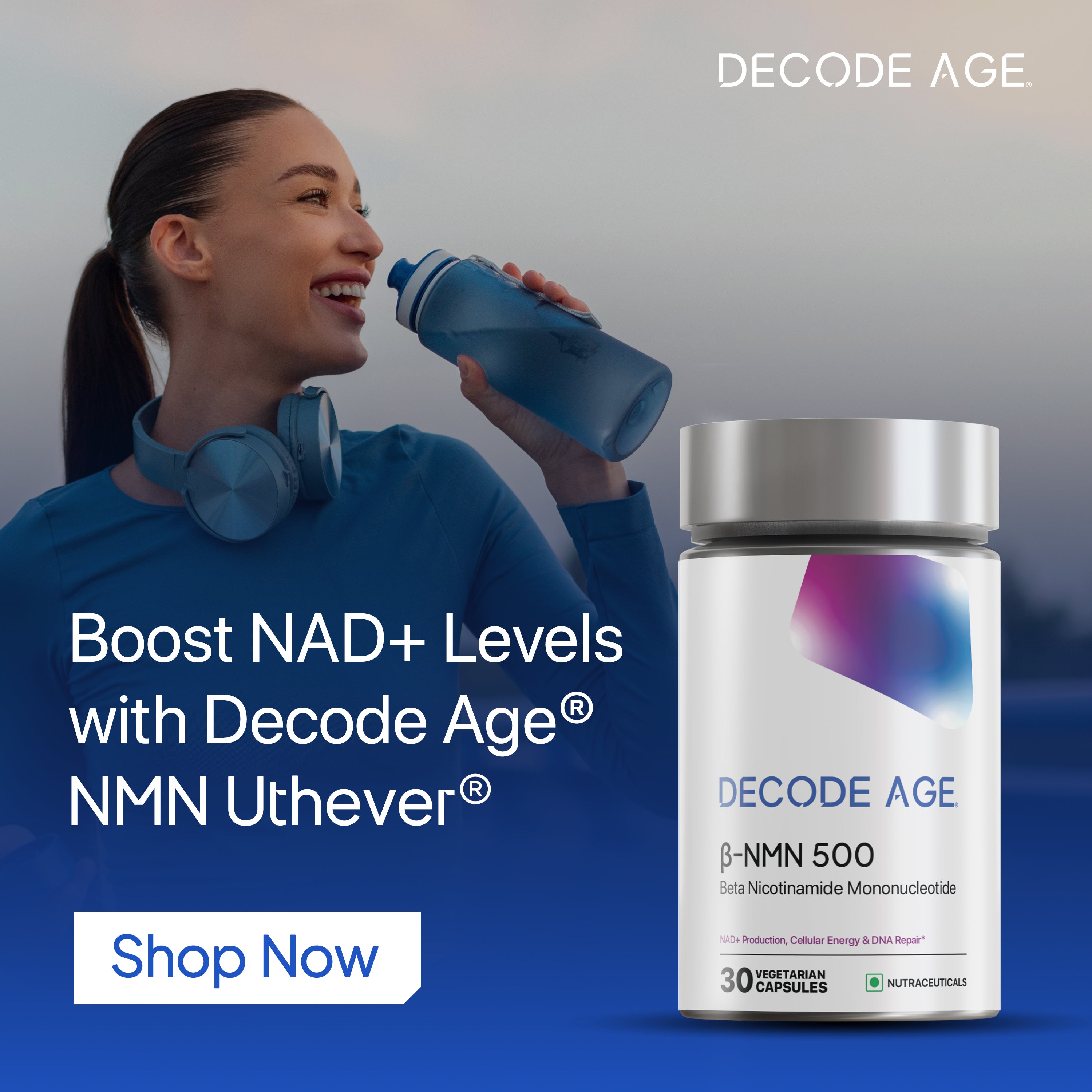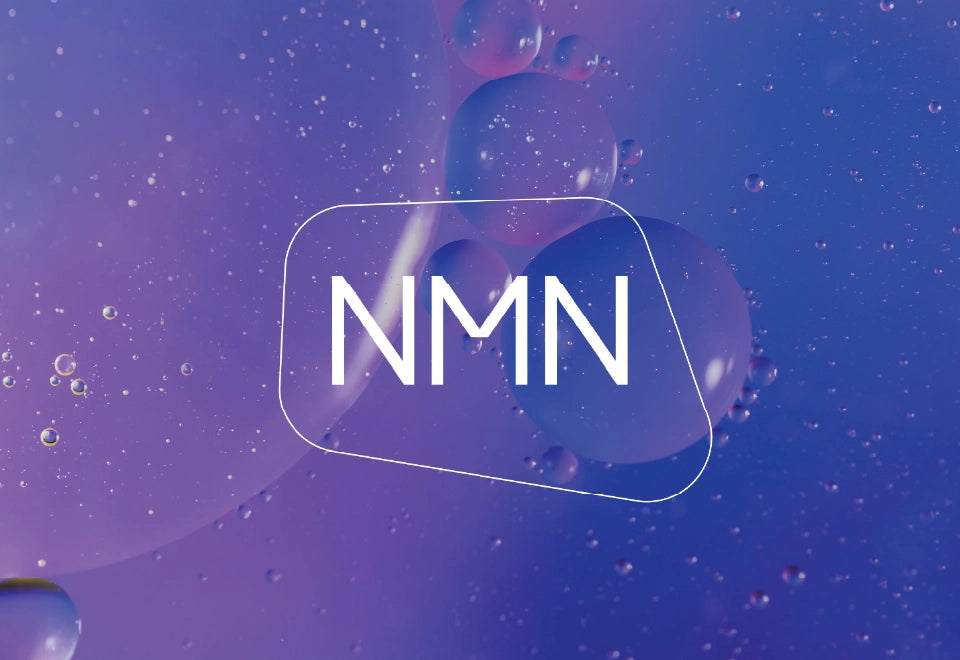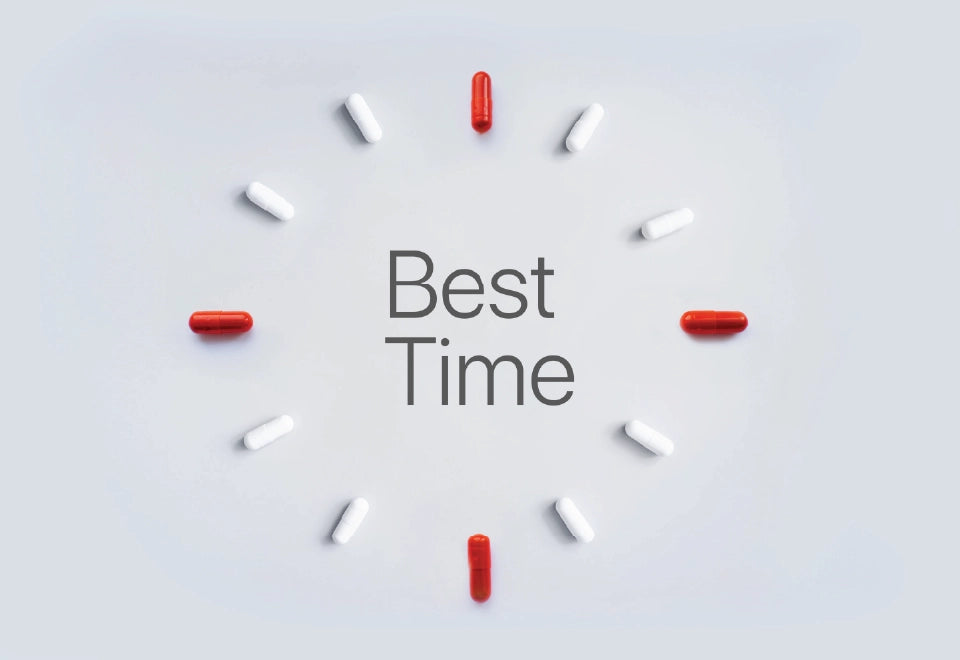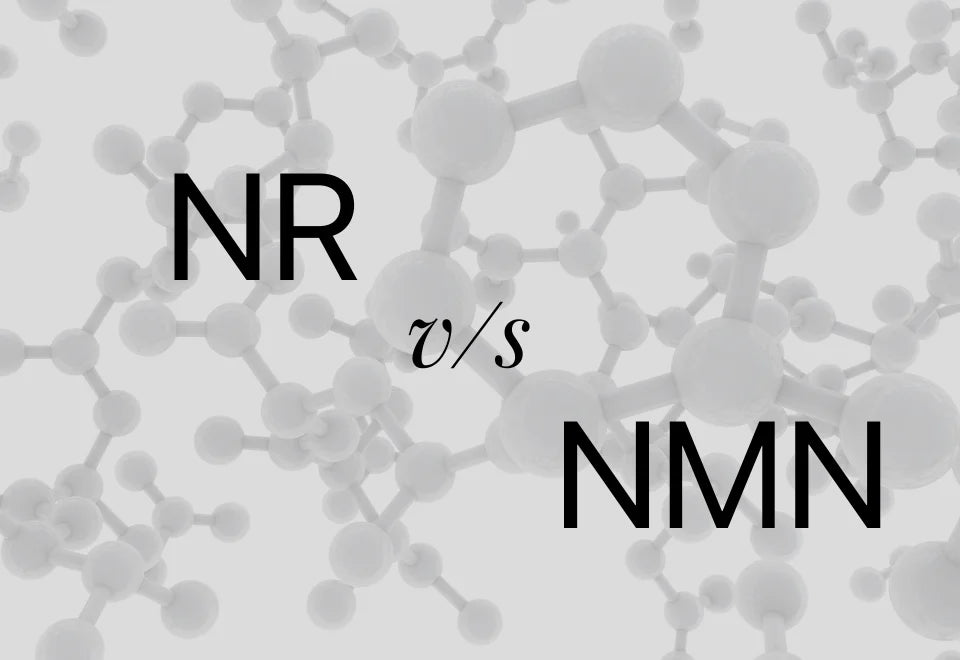In today's fast-paced world, mental clarity is essential for daily tasks and challenges. However, many individuals experience a common yet often overlooked issue known as brain fog. Characterised by mental confusion and a lack of clarity, brain fog can hinder cognitive function, leading to forgetfulness, detachment, and even feelings of discouragement or depression. While not formally recognised as a medical condition, its prevalence is widespread among people of all ages, impacting various aspects of life, from work to relationships. Fortunately, emerging solutions like Nicotinamide Mononucleotide (NMN) supplements offer a glimmer of hope. NMN, a precursor to NAD+ synthesis, shows promise in alleviating brain fog symptoms and mitigating factors contributing to cognitive decline, offering hope for improved mental clarity and well-being.
Struggling to Focus? Here's What You Need to Know About Brain Fog
Brain fog, a common cognitive dysfunction, isn't just forgetfulness, confusion, and a lack of focus. It's a symptom of underlying health issues, often rooted in lifestyle choices. Poor sleep, stress, and unhealthy eating habits can significantly disrupt daily life and contribute to brain fog. Exposure to electromagnetic radiation from electronics, reduced blood flow to the brain caused by stress, inadequate sleep, and a diet lacking essential nutrients can all worsen this condition.
Symptoms of brain fog, including insomnia, headaches, fatigue, impaired cognitive function, and mood swings, can severely impact daily functioning. Forgetfulness, difficulty concentrating, and low motivation hinder productivity and may lead to absences or mild depression. To effectively manage brain fog, addressing its root causes is important. Incorporating lifestyle changes like enhancing sleep patterns, managing stress, adopting a balanced diet rich in essential nutrients, and minimising exposure to toxins can significantly alleviate symptoms. Emphasising holistic approaches to address lifestyle-related triggers can empower individuals to mitigate the debilitating effects of brain fog and reclaim control over their cognitive health.
How NMN Helps Fight Brain Fog
NMN, a precursor to NAD+, plays a pivotal role in combating cognitive decline by enhancing cellular functions and DNA repair, effectively addressing brain fog, and boosting cognitive performance. Despite comprising only 2% of the body's mass, the human brain consumes a significant portion of the body's oxygen, emphasising its immense energy demands. This heightened metabolic activity renders the brain susceptible to oxidative stress and age-related decline. Studies indicate that age-related mitochondrial DNA damage and oxidative stress are key contributors to cognitive decline and fatigue, impacting cognitive function and sleep quality.
Research suggests that NMN supplementation has the potential to mitigate these effects by elevating NAD+ levels. NAD+ is essential for maintaining cellular metabolism and mitochondrial function, both of which are critical for sustaining cognitive health and energy levels. By replenishing NAD+ levels, NMN facilitates efficient cellular energy production, thereby combating fatigue and enhancing cognitive function. The activation of sirtuin genes, such as Sirt1, through NMN intake indicates its potential to mitigate age-related physiological decline and promote overall health. Additionally, NMN's capacity to enhance mitochondrial function and counter oxidative stress may translate into cognitive benefits for older adults. By preserving cellular integrity and supporting optimal neuronal function, NMN supplementation shows promise for alleviating brain fog, cognitive impairment and age-related cognitive decline. (X. Zhao et al., 2023; M. Kim et al., 2022)
Benefits of NMN for Brain Fog
- Boosting Mitochondrial Function: By increasing NAD+ levels, NMN supports the efficient functioning of mitochondria within brain cells. Enhanced mitochondrial function translates to improved energy production, providing the brain with the energy it needs to combat brain fog. With NMN supplementation, brain cells can generate more adenosine triphosphate (ATP), the primary energy currency of cells, leading to heightened alertness and cognitive performance.
- PARP Activation: Poly-ADP ribose polymerase (PARP) activation can have neuroprotective effects by preventing the accumulation of DNA damage in neurons. By facilitating DNA repair processes, PARPs help mitigate the harmful consequences of DNA damage, such as apoptosis or senescence, which are detrimental to neuronal viability and function. Therefore, enhancing PARP activity through increased NAD+ availability, possibly through NMN supplementation, may contribute to neuroprotection against various insults.
- Sirtuin Activation: NAD+ is crucial for activating sirtuins. Sirtuins play key roles in DNA repair mechanisms like base excision repair (BER) and double-strand break repair (DSBR). In brain function, sirtuins are implicated in neuroprotection, synaptic plasticity, and cognition. By boosting NAD+ levels, NMN supplementation may support sirtuin-mediated DNA repair and overall cellular health, potentially impacting brain function positively.
- Supporting Cellular Repair: NAD+ also plays a role in cellular repair mechanisms. By increasing NAD+ availability, NMN facilitates the repair of damaged brain cells caused by oxidative stress, free radicals, and other environmental factors. This cellular repair promotes brain health and resilience, guarding against the onset of brain fog episodes. Furthermore, NMN's ability to mitigate cellular damage contributes to long-term cognitive vitality, ensuring sustained mental acuity and clarity.
Natural Ways to Alleviate Brain Fog

Here are some effective ways to combat brain fog through lifestyle changes:
-
Intermittent Fasting (IF)
IF, a dietary regimen characterised by alternating periods of eating and fasting, has garnered attention for its potential cognitive benefits. By stimulating the production of ketones, IF promotes enhanced cognitive function. Furthermore, it improves insulin sensitivity, facilitates efficient sugar utilisation, and contributes to mental clarity. Additionally, IF's anti-inflammatory properties counteract conditions like brain fog, thus supporting cognitive wellness.
-
Low-Carbohydrate Diet
To clear brain fog, try a low-carbohydrate diet. Cut out high-sugar snacks, processed foods, white pasta, bread, rice, and starchy vegetables like potatoes. Instead, opt for healthy fats and proteins such as organic grass-fed meats, wild fish, nuts, seeds, low-sugar fruits, and non-starchy vegetables. You can also include grass-fed dairy and fermented foods like yoghurt and kefir in your low-carb eating plan.
-
Prioritise Quality Sleep
Sufficient sleep is indispensable for mental clarity and combating brain fog. The research underscores the significance of obtaining 7-8 hours of sleep a night to alleviate fatigue, enhance productivity, and sharpen focus. Consistency in sleep patterns, with regular bedtimes and wake-up times, fosters a healthy circadian rhythm conducive to optimal cognitive performance.
-
Limit Screen Exposure
Excessive screen time can worsen cognitive fog. Intermittently disconnecting from screens throughout the day and refraining from screen use before bedtime can mitigate its harmful effects on cognitive function.
-
Embrace Regular Exercise
Engaging in regular physical activity promotes increased blood circulation to the brain, thereby augmenting cognitive function. Incorporating exercise into one's routine not only enhances overall health but also contributes to sharper cognitive acuity.
-
Effectively Manage Stress
Chronic stress can obscure cognitive clarity. Implementing stress-reduction techniques such as meditation, yoga, and spending time in nature fosters relaxation and mental rejuvenation, thereby alleviating cognitive strain.
-
Prioritise Hydration
Maintaining adequate hydration is vital for combating fatigue and sustaining focus. Consistently consuming ample water throughout the day supports optimal cognitive function and minimises the risk of cognitive decline associated with dehydration.
By incorporating these natural remedies into one's lifestyle, individuals can proactively enhance cognitive function, fostering mental clarity and overall well-being.
Conclusion
In conclusion, ageing is often accompanied by changes in cognitive function and instances of brain fog, presenting challenges such as memory loss, slower processing speeds, and difficulty concentrating. As we look towards the future, promising biotechnologies are emerging that may substantially extend our lifespans. To position ourselves to benefit from these advancements, prioritising our health and longevity is crucial.
Strategies such as intermittent fasting, adopting a low-carbohydrate diet, ensuring quality sleep, taking NMN supplements, limiting screen exposure, engaging in regular exercise, managing stress, and staying hydrated can play pivotal roles in maintaining cognitive function and promoting brain health as we age. Furthermore, ongoing research into neuroplasticity offers hopes for innovative interventions that support cognitive resilience throughout the ageing process. By embracing these approaches, we can optimise our chances of living healthier, more fulfilling lives in the years to come.
FAQs
What does NMN do to the brain?
NMN benefits the brain by reducing neuroinflammation, mitochondrial dysfunction, and cognitive decline linked to ageing. Studies show it counters age-related adipose tissue inflammation and enhances mitochondrial and neuronal function. This compound thus promotes brain health by addressing various age-related issues, potentially improving cognitive function and overall well-being.
Does NMN help with memory loss?
NMN exhibits the potential to address memory loss. Research suggests that NAD+ precursors like NMN can enhance memory, learning, and mitochondrial function. While some studies show cognitive improvements with NMN supplementation, its efficacy in countering memory impairment from external chemicals remains uncertain. Further research is necessary to fully understand NMN's capability in mitigating memory loss induced by diverse factors.
Does NAD repair the brain?
Nicotinamide adenine dinucleotide (NAD) plays a pivotal role in brain repair. Serving as a vital organic coenzyme, NAD promotes neurological function restoration, safeguards brain cells, and promotes neural regeneration. Its incorporation into routines can markedly boost cognitive abilities, ensuring enhanced brain health and overall well-being.
What dosage of NMN does Decode Age recommend for me?
Decode Age recommends different dosages of NMN based on age and athletic activity level:
- For individuals aged 18-30, the recommended dosage is 250 mg of NMN.
- If you're between the ages of 31-50, opt for a 500 mg dose.
- If you're 50 years old and above, the recommended dosage is 1000 mg.
- For athletes aged 18-30, it's beneficial to take a dosage of 500 mg.
- Athletes aged 30 and above should go for a dosage of 1000 mg.
Is it OK to take Decode Age NMN every day?
Yes, it’s perfectly fine to take Decode Age NMN every day. Decode Age NMN Uthever® is a derivative of the B3-vitamin niacin that significantly improves health and longevity by serving as a precursor to NAD+. Improved NAD+ levels participate in over 500 metabolic functions, promoting processes that repair DNA, produce energy, and build blood vessels. It is the only NMN proven to boost NAD+ in a double-blind, placebo-controlled, peer-reviewed published clinical study. Taking it daily can potentially enhance these benefits consistently over time.

























Leave a comment
All comments are moderated before being published.
This site is protected by hCaptcha and the hCaptcha Privacy Policy and Terms of Service apply.